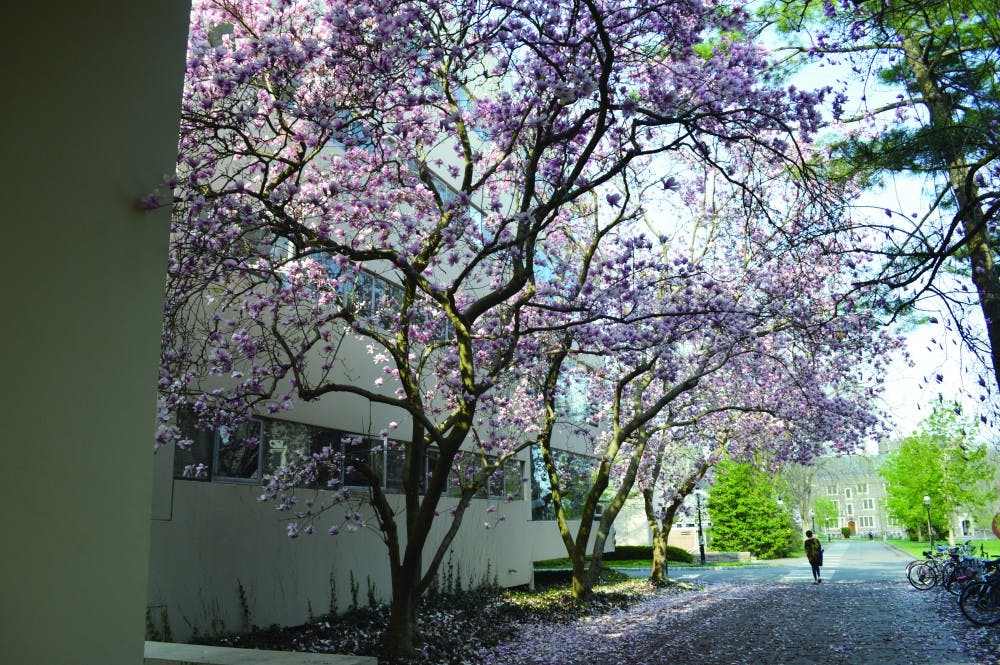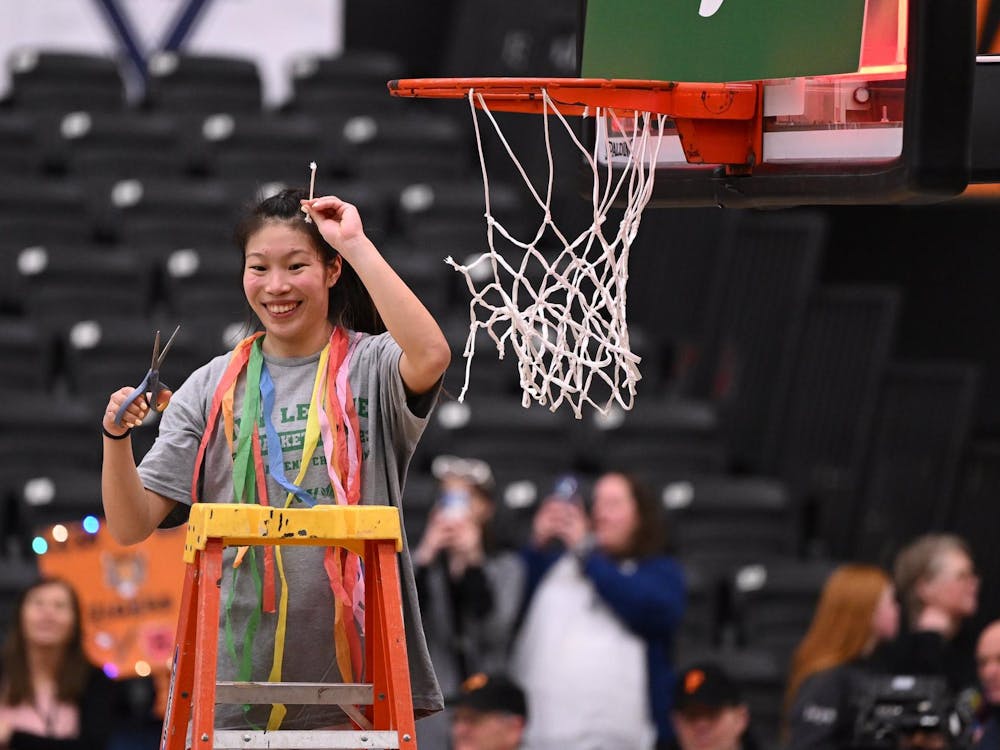After stepping into the Scully kitchen to prepare their dinner, only to find yet another mess of unwashed counter tops and remnants of food left by non-independent students, Arlene Gamio ’18 was fed up.
Gamio expressed their frustration with the present state of affairs of independent students on Feb. 4, calling on their fellow independents to voice their grievances through submissions to their survey posted on Facebook.
The University cannot expect students to be independent while at the same time not providing the resources to make this option feasible, Gamio said.
“It is not a coincidence that many independent students are low-income and first generation,” they explained. “As a low-income, first generation student of color, being independent was the most feasible option for me.”
Gamio is not the only independent student ready for some change. Cailin Hong ’17, a member of the Independent Students’ Advisory Board (ISAB), said that many of her independent friends identify as low-income, or were at least concerned enough about finances that cost-saving motivated their decision to choose an independent eating plan.
These comments have come into a new light after President Christopher Eisgruber ’83 released his annual letter on the State of the University, sent out to students on Feb. 15, which highlighted the rapid increase in socioeconomic diversity as a result of recent University initiatives and the University's need to “ensure that [students with disadvantaged backgrounds] have the financial and other support required to thrive at Princeton.”
The ISAB published a survey Nov. 22, 2016, asking independent students to share their opinions about independent housing, as well as any suggestions that they had for improving the system. The survey received 102 responses.
When asked why they chose to go independent, 50 percent of students’ answers included financial reasons or mentioned the more expensive prices of eating clubs and other dining hall options. Around 25 percent of the responses referenced a preference for going independent instead of joining the eating club culture for different reasons. The final 25 percent included reasons of convenience and students’ desires to cook on their own and eat more healthily.
The most prevalent complaint among independent students surveyed was a lack of apartment-style independent housing, a concern among more than 50 percent of respondents. Several students in the survey criticized the current room-draw system that allows non-independent students to draw into Spelman Hall — the highly coveted apartment-style dorm on campus — while many independent juniors are left on waiting lists.
40 percent of independent students surveyed said that they do not live in Spelman even though it was their top choice for room draw. More than 80 percent of students surveyed wanted more dorms like Spelman, which is the only apartment-style dorm on campus and is widely seen as the most coveted independent dorm.
According to Director of Housing Dorian Johnson, increasing the number of rooms for independent students is not currently a priority. Johnson said that statistics show that each year, there are leftover rooms in the independent draw that are placed into the regular upperclassman draw, indicating an adequate supply of independent-style housing.
Yet, Johnson did note that students have reached out to Housing and Campus Life administrators and requested more resources and assistance for independent students. He noted that student focus groups were convened as part of the Board Plan Review project this past fall to discuss both independent living environments as well as all current University dining options.

University administrators are hopeful that some of the data collected from these discussions will help steer the University in the right direction in order to provide more dining options for students, Johnson said.
According to the ISAB survey, one suggestion offered by a large number of independents is cheaper and more local grocery shopping. Around 40 percent of independent students surveyed consider the most important unaddressed issue to be the lack of affordable groceries and fresh produce in Princeton and at the University, as well as the lack of transportation options to obtain groceries without a car.
“I think generally the living and cooking conditions are great, but my main problem is grocery accessibility,” said Annie Lu ’17. “The Saturday Shopper is nice, but it takes like two hours to actually get anything, and it's hard to carry everything back to the dorms.”

One independent student in the survey suggested the construction of an on-campus food mart mediated by campus dining, which orders in bulk for fresh produce, that would decrease University food waste, increase ease of grocery access, and “generally make being an independent more reasonable and enjoyable.”
Independent student Hajrah Hussain ’17 believes the University can be much more savvy with the policies for independent students. The University could allow them to use their two meal-swipes a week for a “pseudo-grocery” shopping option where independents could have to-go boxes at the salad bar. Hussain added that the University could also allow unused swipes at the dining hall to accumulate for later usage.
Director of Media Relations John Cramer reiterated that Tiger Transit runs weekend buses to grocery stores, but he maintained that student concerns regarding grocery-shopping operations are being examined.
In terms of kitchen access, Dorian Johnson explained that the rooms in independent room draw are all near “full kitchens" — kitchens that include an oven, stove, refrigerator, and microwave, to provide access to kitchens that support full meal preparation.
Yet Gamio noted that one of the major issues surrounding independent students is that too many of the full kitchens are open to all students. As a result, they said, many independent students have been forced to clean up after student groups and non-independent students in order to adequately cook their food.
According to the University’s Independent Student Guide (ISG), only Pyne Hall and Lockhart Hall are “limited access,” available only for independent students.
Johnson added that the ISG was written by students and provides many resources, including information such as tips about kitchens, cooking and recipes, and where to buy groceries.
Many independents stated that the ISG needs serious updating from its update in 2009, mentioning the restaurant/food page, renting off-campus, sustainability conversations, health and wellness, cooking classes, and other possible areas for improvement.
For low-income independent students specifically, Gamio added that the University should create opportunities to buy cheap cooking supplies and certain dorm room appliances. Currently, many of these items are exchanged among independents via “Free and For Sale” on Facebook, not through University-aided media.
To improve the sense of community among independent students, many independents surveyed suggested the establishment of more co-ops and a change in University policy that would allow independent students to join any co-op without any restrictions.
One independent student surveyed said that the lack of a meal exchange option for independent students isolates independents from their friends, particularly those in eating clubs who do not have guest swipes.
Isolation of independents can be detrimental to their mental health, especially when they may already feel separated or excluded, the student reported. This isolation seems to go against Princeton's stated goals of ensuring that everyone feels included, comfortable, and safe on campus, the student said in the survey.
For Bennett McIntosh ’16, however, the biggest obstacle facing the independent experience is the culture.
“It’s kind of perverse that cooking for yourself, something any 21- or 22-year-old should be capable of, is the exception rather than the rule at Princeton,” McIntosh said. “I don't know if that's the work-hard-play-hard culture or what, but independent life never felt like it was part of the ‘Princeton Experience,’ whatever that's supposed to be.”
While they continue to raise their concerns to the University and push for improvements, independent students will continue to do what they do now: communicate with and help one another through listservs, and get by on their own.








